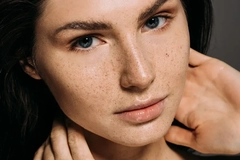Natural oil with SPF 25+ “effectively blocks UVA rays” according to researchers
.png)
24 Aug 2022 --- A study investigating the skin protection potential of a yellow oil isolated from Asystasia vogeliana leaves has found the oil to be nontoxic and suitable for use in skincare product formulation. The yellow oil displayed an SPF of more than or equal to 25, suggesting that the oil can effectively block UVA, which according to the researchers is currently commercially uncommon.
Results showed that the oil sample absorbed maximally at 280 and 340 nanometers of UV-spectrum, which makes it usable for UV-A, B and C radiations.
The isolated yellow oil was used to determine acute dermal irritation on an experimental rabbit. The in-vitro research also determined total flavonoids, vitamins A and E and phenolic contents based on standard methods.
The study, carried out by Nigerian researchers, has been published in the Adeleke University Journal of Science.
Applications of the oil
To assess the yellow oil’s acute dermal irritation (ADI), researchers conducted an in-vivo test on a male rabbit. They found no elicit skin irritation properties throughout 72 hours of assessment. This suggests that A. vogeliana yellow oil could be employed in herbal cosmetic formulations to lubricate, smoothen and protect human skin against harmful UV radiation.
.png) A. vogeliana yellow oil can effectively block UVA.The oil also displayed antioxidant constituents such as phenols and flavonoids. These constituents exert a protective effect on body tissues and have received particular attention as potential therapies against chronic diseases.
A. vogeliana yellow oil can effectively block UVA.The oil also displayed antioxidant constituents such as phenols and flavonoids. These constituents exert a protective effect on body tissues and have received particular attention as potential therapies against chronic diseases.
Plant-derived
The study recognizes that the cosmetic industry is shifting toward plant-based beauty products rather than synthetic ones due to safety, effectiveness and cost.
The yellow oil derived from A. vogeliana could be a potential lead for skincare product formulation. The plant is a straggling undershrub found in African regions, and the A. vogeliana leaf is traditionally used to treat various disease conditions in the southern region of Nigeria.
To obtain the yellow oil, researchers pulverized air-dried leaf samples, extracted them with dichloromethane for 72 hours and concentrated them in vacuo to produce dichloromethane extract.
The extract was absorbed on silica gel and fractionated using the gradient elution method. Fractions were bulked based on thin layer chromatography profiles and purified further until a single spot (yellow oil) was obtained.
Debates around animal testing
Since this study was primarily only conducted on a rabbit, the yellow oil requires further development and research to be used in human skincare according to the researchers.
.png) ACS has recently highlighted that the US FDA is wholly evaluating its animal testing requirement, thus impacting the cosmetics sector. The American Chemical Society (ACS) has recently highlighted that the US Food and Drug Administration (FDA) is wholly evaluating its animal testing requirement, thus impacting the cosmetics sector.
ACS has recently highlighted that the US FDA is wholly evaluating its animal testing requirement, thus impacting the cosmetics sector. The American Chemical Society (ACS) has recently highlighted that the US Food and Drug Administration (FDA) is wholly evaluating its animal testing requirement, thus impacting the cosmetics sector.
“The FDA promotes using the 3 R’s – Replace, Reduce and Refine – in the development and use of alternatives to animal testing as well as adherence to the most humane methods available within the limits of scientific capability when animals are used for testing the safety of chemicals and finished cosmetic products,” a spokesperson at the FDA previously told PersonalCareInsights.
“Although there may be instances where animal testing is recommended to provide evidence on the safety of a chemical or finished cosmetic product, the FDA has a long-standing commitment to promoting the development and use of new technologies to predict better human and animal responses to substances relevant to its regulatory mission.”
“[Furthermore,] humane alternatives to animal tests can use simple organisms like bacteria or human tissues and cells as well as sophisticated computer models. For example, almost every type of human and animal cell can be grown in the laboratory” shared a spokesperson from The Body Shop regarding the EU animal testing regulations.
Similarly, Unilever maintains that advancements in science and technology can generate more relevant safety data to protect people and the environment. It shares that it has developed and used non-animal methods for more than 40 years.
Thailand-based researchers found that product promotion, including quality, appearance, sales and discounts, are “extremely important” factors affecting consumer decisions on purchasing cosmetics and skincare products that are not tested on non-animals.
By Radhika Sikaria













